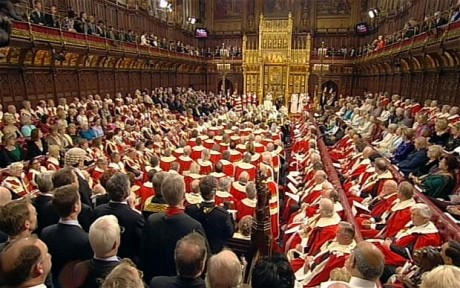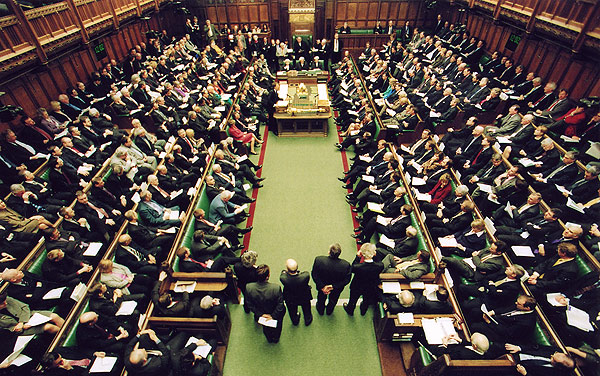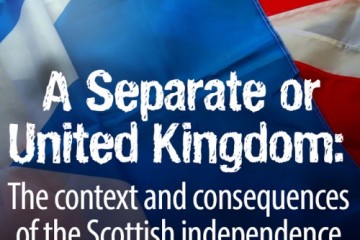
Alternatives to fixed-term elections
Until the present coalition government introduced the Fixed-term Parliaments Act, in 2011, the UK Prime Minister had discretion to call elections at will, a power often used for partisan advantage. As Petra Schleiter reports in her recent post on Politics in Spires, 60% of the UK’s post-war elections were called early (i.e. more than six months before required). Further, her analysis suggests that this gave incumbents a 6% vote gain, roughly doubling the PM’s chances of remaining in office.
The Fixed-term Parliaments Act allows early elections to be called only in very restricted circumstances (either with support of two-thirds of the House of Commons or following a vote of no confidence after which no alternative government is approved by the Commons within 14 days). Schleiter points to a number of advantages of this; not only does it stop PMs from calling elections opportunistically, in order to increase their chances of victory, but depriving them of this power also prevents them from using the threat of an election to bully backbench MPs or coalition partners, thereby making the government more accountable to parliament.
However, in focusing on the advantages of fixed-term elections, Schleiter does not consider whether there are certain advantages to the old system, in which an election could be called at any moment.

Migration and the political
Ever since the collapse of second-world socialisms as “actually existing” political alternatives to global capitalism, the political terrain has shifted considerably. Old political subjects, such as class, seem to have disappeared or waned in significance, while new political subjects are elusive. Political action consists of seemingly unorganised and spontaneous mass events without clearly articulated agendas or of practices of daily life that have subversive political effects. Both forms of political action are often invested with hope that they will somehow enable alternatives to the currently predominant forms of organising collective life.[1]
This political desire also attaches to migration. Some years ago, Étienne Balibar wrote of immigrants as “today’s proletariat” (2004: 50). More recently, Dimitris Papadopoulos, Vassilis Tsianos and Niamh Stephenson (2008) have written about clandestine migration as imperceptible politics, namely as a social practice that does not have an explicit political goal, but that brings about large-scale shifts in the political field. The prevailing sentiment in activist circles seems to be that if migration is disruptive, as mainstream political elites suggest, then this disruption might as well be put to different political ends. Thus, for example, a group of scholars and activists working on borders recently occupied the discursive terrain by introducing new keywords in migration and borders, such as “militant investigation”, “counter-mapping” and “bordering” among others (Casas Cortes et al. 2014).

The Great Charter Convention
Next year is the 800th anniversary of Magna Carta. Following the independence referendum in Scotland, calls for a constitutional convention are widespread and growing. Politics in Spires, together with OurKingdom, IPPR and the Department of Politics at the University of Southampton, are hosting the Great Charter Convention – an open, public debate on where arbitrary power lies in the UK today and how we should contest and contain it. What would a new Magna Carta say, and what could a new constitutional settlement for Britain look like?

And the House of Lords trundles on
In an election held this month, Raymond Benedict Bartholomew Michael Asquith, third earl of Oxford and Asquith was elected to take up the seat in the House of Lords vacated by the death of Robert Alexander Hold Methuen, the seventh baron Methuen. The ballot was conducted using AV (the Alternative Vote), but Lord Oxford received 155 votes of the 283 votes (55%), so preferences were not taken into account. (The proxime accessit, Lord Napier and Ettrick, received only 35 votes, and seven of the fifteen candidates received only one vote or none at all.) Turnout was 36%. All members of the House of Lords (currently 776) were eligible to vote. The new member will sit with the Liberal Democrat peers, as did his predecessor.
This unusual process is a result of a compromise reached when the House of Lords was reformed in 1998 and 1999. The Labour Party manifesto in 1997 had proposed to remove all of the hereditary peers from the house, but in a departure from the Salisbury-Addison convention the Lords objected and prevailed, forcing the government to retain 92 of them. (McLean 2009: 234) (In reality, only ninety were retained. The other two hereditaries are held ex officio by great officers of state: the Earl Marshal and the Lord Great Chamberlain, who are peers.) Lord Cranborne, who as Conservative leader of the Lords engineered this bargain, failed to tell his leader William Hague about it and was sacked when Hague learned of it independently.

The floating label of ‘the migrant’
“Hang on they are not tourists”, a UK citizen said to his wife with wide eyes and an expression on his face suggesting this realisation was a big surprise. “They could even be ‘migrants’…couldn’t they?”
This is a question — in this case one I heard in an interview — that has always been complex, but is becoming even more so, in the UK and elsewhere. Time has changed legal and regulatory circumstances, and the demographic of people who come to Britain have also changed.
These changes have generated new migrant categories, typologies and tiers but also new stigmas, phobias and labels.
Who is a migrant? Alas, there is no clear legal or administrative definition of ‘migrant’. A 1953 United Nations recommendation referred to the definition of “permanent immigrants” as non-residents (both nationals and aliens) arriving with the intention to remain for a period exceeding a year and of “permanent emigrants” as residents (nationals and aliens) intending to remain abroad for a period exceeding one year (United Nations, 1953).

Why the Fixed-term Parliaments Act should not be repealed
The Coalition introduced the Fixed Term Parliaments Act in 2011. Now some Conservative MPs want to repeal the Act. But Fixed Term Parliaments are good for UK democracy and the Act should stay. When the current coalition government introduced the Fixed-term Parliaments Act in 2011, the case appeared compelling: The Government believes that fixed-term Parliaments will have a positive impact on our country’s political system; providing stability, discouraging short-termism, and preventing the manipulation of election dates for political advantage. (“Government response to the report of the House of Lords Constitution Committee on the Fixed-term Parliaments Bill”, 2011, Introduction) Now Tory MPs have changed their minds. This week a group of Tory backbenchers have been mounting a campaign to repeal the …

Immigration controls and their effects on citizenship
UKIP’s recent by election victory proves it: the public are extremely worried about immigration and its impacts on labour markets and communities. The pressure is increasing on politicians of all parties to ‘do something’ about immigration.
But this is nothing new. A quick look at immigration laws in the last decade suggests that there has been no shortage of efforts to do something. The most recent Immigration Act 2014 is the fourth major Act in ten years, and the eighth since 1996. During its nine years in office, Labour created eighty-four new immigration offences (Aliverti 2012). These laws have had significant consequences for non-citizens, consequences that have been the subject of interest across a wide range of social science disciplines.
Often forgotten, though, are the consequences for citizens and the idea of citizenship. Our blog series on migration and citizenship hopes to address this omission.

On Devolution: England should get what England wants – it’s time to find out what that is
‘You can be proud to be English and British’, Labour party leader Ed Miliband told his party conference. Yet the Labour leader ducked the question of England’s place within the next stage of devolution, instead warning that Prime Minister David Cameron’s raising of the issue of ‘English votes for English laws’ could divide the UK.
Labour’s complaint – that the Prime Minister’s raising the question of English votes for English laws was simply a partisan ambush – is unconvincing, because it fails to answer the key questions.
Any party which wants to be part of the conversation needs to decide what it is offering to England and the English.









